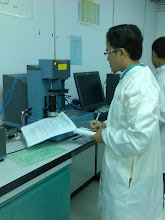Masaru Emoto has photographed thousands of water crystals throughout his years of research, yet few have been as beautiful and life affirming as those formed from the words "love and gratitude." In The Miracle of Water, Dr. Emoto demonstrates how water's unique role in transporting the natural vibration of these words can help you welcome change and live a more positive and happy life. Dr. Emoto also explores the significance of words and language, their origins, and their impact on water. He introduces and explains the key concept of resonance -- the vehicle through which life-force energy is transmitted. From this knowledge, he draws out lessons that we can apply to our lives to reap the benefits of positive resonance, including more harmonious relationships, restored health, and improved communications. This thoughtful book includes new and extraordinary water-crystal photographs that provide convincing reasons for all of us to choose positive words and strive for perfect resonance for a more healthy, peaceful, and happy life.
 the stucture of 'zam-zam' water........
the stucture of 'zam-zam' water........






